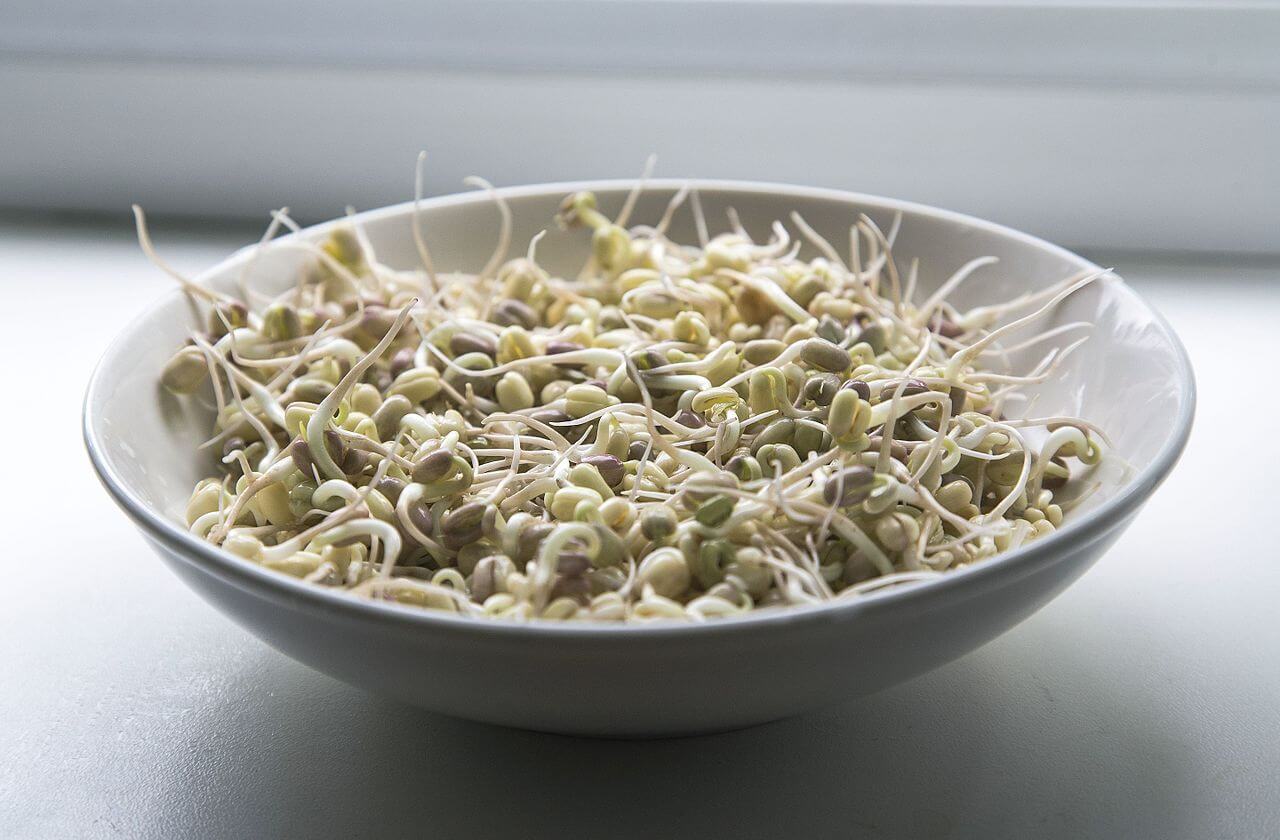
Beans are a great source of nutrition.
They are one of the top vegan sources of iron, and have a lot of protein and a great amino acid profile, but they contain a lot of antinutrients, along with other undesirables.
One way to reduce these negative aspects of beans is to soak them before cooking them (soaking beans is important for softening them as well).
People have soaked beans and nuts throughout history, but it wasn’t until recently that the science behind the benefits of soaking really became clear.
If you’re eating a lot of beans, there are 4 main ways that you will benefit.
Table of Contents
Benefit #1 – Soaking Reduces Bloating and Gas
One of the main reasons that beans typically cause gas and bloating is because they contain a large amount of oligosaccharides in the outer coating.
They’re not the only cause of gas in beans, but arguably the main one.
Soaking drastically reduces oligosaccharides, as long as you toss out the soaking water.
Oligosaccharides are complex carbohydrate molecules that are difficult to digest. They pass through your stomach and small intestine, still not fully digested, which leaves your large intestine to break them down.
This process produces intestinal gas, which causes bloating and general stomach problems if large amounts are present, and you eventually need to get rid of that gas (through farting).
Soaking beans in water for long periods breaks down the outer membranes of the beans, which releases oligosaccharides into the water, which can then be rinsed off.
Fewer oligosaccharides, less gas.
Research has found that soaking reduces the main oligosaccharides (there are multiple) in beans anywhere from 25% to 88%, without affecting the overall nutrition of the bean.
Benefit #2 – Reduces Phytic Acid Levels and Improves Mineral Absorption
Beans contain a lot of antinutrients, which is an umbrella term for compounds that interfere with nutrient absorption.
In general, you don’t want to be consuming too many antinutrients.
Beans have a large amount of phytic acid, tannins, and lectins.
Most antinutrients are good in small volumes, but not in large volumes.
Phytic acid, in one particular form, is sold in health food stores as IP6. It’s been proven to be an anti-cancer agent. But in high volumes, it impairs calcium, iron, and zinc absorption (beans are one of the best vegan zinc sources as well).
You need to find the right balance.
If you eat a lot of beans, you’re likely consuming more than enough of these antinutrients, so reducing how much you get is a good idea.
This is especially important for vegans, who generally eat more beans than people following other diets.
Note that you won’t remove all of these compounds unless you combine many preparation techniques like soaking, sprouting, and fermentation. For phytic acid in particular, soaking usually removes around 20-50%.
So it leaves enough of the antinutrients to get any benefits, without having too much of any particular antinutrient to get significant negative effects.
Benefit #3 – You Remove Contaminants
Depending on where you get your beans, there’s a decent chance that they’re not all that clean, just like any other vegetable.
You might find dirt, insects, or other debris in your beans, especially if you buy in bulk.
When you soak beans, it gives a chance for debris to separate from the beans and often float to the top of your container.
The soaking process also ensures that you rinse and comb through your beans multiple times before cooking, which increases the chances that you’ll find any unwanted debris in your food.
Benefit #4 – Soaking Speeds Up Cooking Times
If you regularly soak your beans, you’ll spend a bit more time planning ahead.
At first, it seems complicated and like a lot more effort, but once you get the process down it’s really just a few minutes of extra work.
You can even use a quick soak method if you aren’t able to always plan ahead.
Because soaking breaks down the outer membranes of beans, they typically cook much faster than if you were to cook them directly from their raw, unprocessed forms.
A Final Note on Soaking Beans
It’s never mandatory to sprout your beans, but you should always soak them for at least a few hours. Just be careful not to soak for too long, or you could end up with mold forming.
You might get a little gas or not quite the full nutrition, but cooked beans are still very healthy, soaked or unsoaked.
Finally, all people are different. Some get huge benefits from soaking, while others only notice a small difference.
Experiment and figure out if soaking is the right approach to cooking beans for you, like it is for so many other vegans.
I get that it’s a bit of a pain, but you can always soak large batches, cook them at once, and then freeze some of those cooked lentils.
